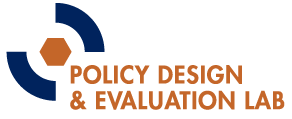Environment
- California's Food, Energy, and Water Systems
- Climate Change and Human Health
- Effects of Temperature on Productivity
- Particulates and Productivity
Researchers: Joshua Graff Zivin (GPS) and Piotr Evdokimov (Instituto Tecnológico Autónomo de México)
Location: Mexico and the United States
A small but growing body of research has shown that outdoor air pollution has effects beyond traditional measures of health. Recent findings demonstrate that exposure to higher levels of ozone and PM2.5 is associated with decreases in the productivity of low-skilled workers in an outdoor (agriculture) and an indoor (factory) setting, respectively. An important gap in this literature is evidence examining the relationship between pollution and more cognitively demanding and economically meaningful decision-making. The researchers intend to fill this gap through field experiments that examine the direct effect from exposure to PM2.5 on elements of economic preferences and strategic behavior affecting a wide range of economically relevant choices, as well as task performance on routine activities that are commonplace in high-skilled industries.
The analysis in this project will be based on experimental games played with subjects under naturally varying environmental conditions in California and Mexico. Using computer labs in ITAM (Mexico City) and UC San Diego, we will recruit volunteers aged 18-35 from the student populations. Complying with all standard procedures of experimental and behavioral economics, we will administer the same protocols on economic preferences, strategic behavior, and task performance. Participants’ choices will be incentivized with real monetary earnings.We will use publicly available air quality data from nearby government monitors to measure exposure to pollution in each experimental session.

